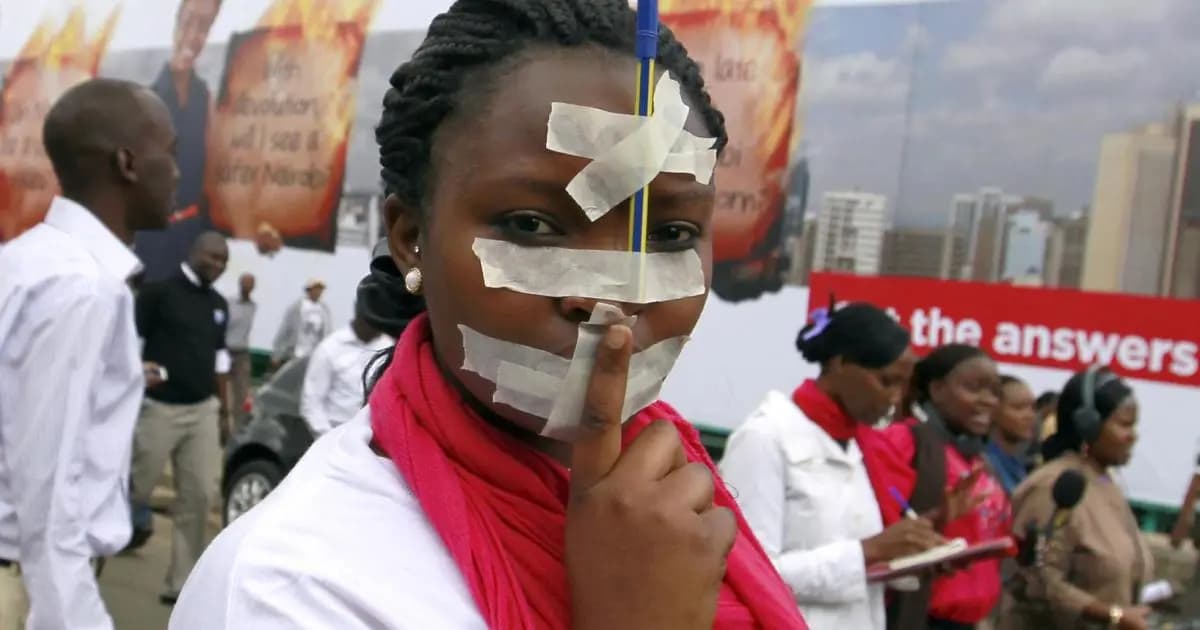We're loading the full news article for you. This includes the article content, images, author information, and related articles.
A coalition of civil society, religious, and business groups warns that unresolved electoral issues and economic strain are creating a volatile environment ahead of the 2027 general election.

NAIROBI, KENYA – A powerful coalition of Kenyan civil society, religious, and business leaders issued a stark warning on Tuesday, November 25, 2025, calling for urgent government action to address mounting political tensions and unresolved electoral reforms. Speaking at a joint press conference in Nairobi, the leaders cautioned that without immediate intervention, the country risks a repeat of previous cycles of election-related violence and economic disruption in the run-up to the 2027 General Election.
The group, operating under the banner of the newly formed "Amani Mbele" (Peace First) Initiative, includes prominent organizations such as the Elections Observation Group (ELOG), the Kenya Private Sector Alliance (KEPSA), and the National Council of Churches of Kenya (NCCK). They highlighted a convergence of risk factors, including delays in electoral reforms, rising political rhetoric, and sustained economic pressure on citizens, as creating a precarious environment nearly 20 months ahead of the polls.
"We are sounding this alarm early because the warning signs are clear and unambiguous," said Martha Karua, a senior counsel and a leading voice in the initiative. "The lessons from our past, particularly the devastating 2007-2008 post-election violence, are etched in our national memory. We cannot afford to be complacent."
Kenya has a documented history of electoral periods triggering instability. The 2007-2008 crisis, which erupted after a disputed presidential election, resulted in over 1,200 deaths and the displacement of more than 350,000 people. The violence also caused a severe economic downturn. Subsequent elections in 1992, 1997, and 2017 were also marred by violence, albeit on a lesser scale.
Economic data consistently shows a pattern of slowdown and increased cost of living around election years. A study of economic indicators between 1990 and 2017 revealed that highly contested elections negatively impact economic activity, with investors often adopting a "wait-and-see" attitude. According to World Bank data, Kenya's economy has been more likely to slow down significantly during multiparty election years. This history of economic disruption underpins the business community's early engagement.
"Electoral uncertainty is a direct threat to economic stability and investor confidence," stated Carole Kariuki, CEO of KEPSA, at the Tuesday press conference. "Businesses are sensitive to tension. Predictability and the rule of law are paramount for investment and job creation. We are calling for a clear and timely roadmap for the 2027 elections to mitigate these economic risks."
Central to the coalition's concerns is the state of the Independent Electoral and Boundaries Commission (IEBC). Although President William Ruto signed the IEBC Bill into law in July 2024, paving the way for the appointment of new commissioners, the process has been fraught with political debate. As of June 2025, the IEBC had informed the Senate that it was prepared for the 2027 polls but required timely legal reforms and adequate funding to execute its mandate, which includes managing 23 pending by-elections.
Recent by-elections have been described as a "stress test" for the 2027 polls, with some marred by deadly clashes, voter bribery, and inflammatory rhetoric. This has intensified scrutiny on the National Cohesion and Integration Commission (NCIC), which has been criticized for failing to rein in hate speech. The term of the current NCIC commissioners was set to expire in November 2025, raising concerns about a potential leadership vacuum at a critical time.
The political landscape is further complicated by emerging realignments. Recent reports indicate growing tensions and shifting alliances, foreshadowing an intense contest in 2027. This political maneuvering, combined with persistent public discontent over the high cost of living and new taxes, has fueled a volatile atmosphere.
The Amani Mbele Initiative outlined a multi-point plan, urging Parliament to fast-track the passage of key electoral bills recommended by the National Dialogue Committee (NADCO). They called for the full constitution and funding of the IEBC by early 2026, a public commitment from all political parties to a code of conduct, and enhanced capacity for the NCIC to monitor and prosecute hate speech.
The coalition, which represents a broad cross-section of Kenyan society, emphasized that ensuring a peaceful election is a shared responsibility. "A credible election is not the sole responsibility of the Commission—it is a collective effort," an IEBC official noted in June 2025, a sentiment echoed by the civil society leaders.
As the nation looks toward 2027, the early warnings from these key stakeholders serve as a critical reminder of the fragility of electoral peace and the urgent need for proactive measures to safeguard Kenya's democratic process and economic future.
Keep the conversation in one place—threads here stay linked to the story and in the forums.
Sign in to start a discussion
Start a conversation about this story and keep it linked here.
Other hot threads
E-sports and Gaming Community in Kenya
Active 9 months ago
The Role of Technology in Modern Agriculture (AgriTech)
Active 9 months ago
Popular Recreational Activities Across Counties
Active 9 months ago
Investing in Youth Sports Development Programs
Active 9 months ago
Key figures and persons of interest featured in this article